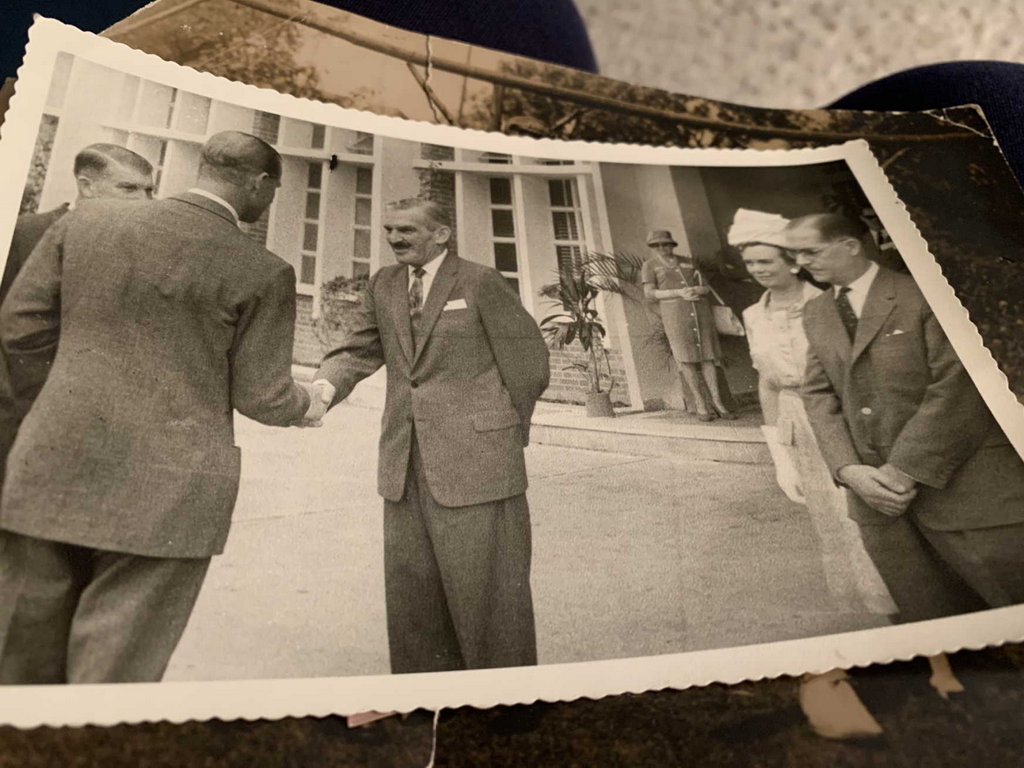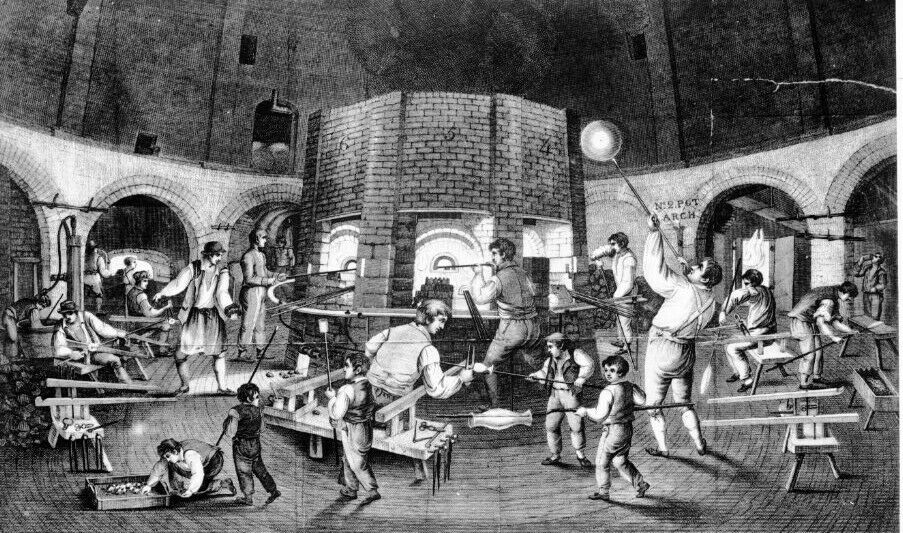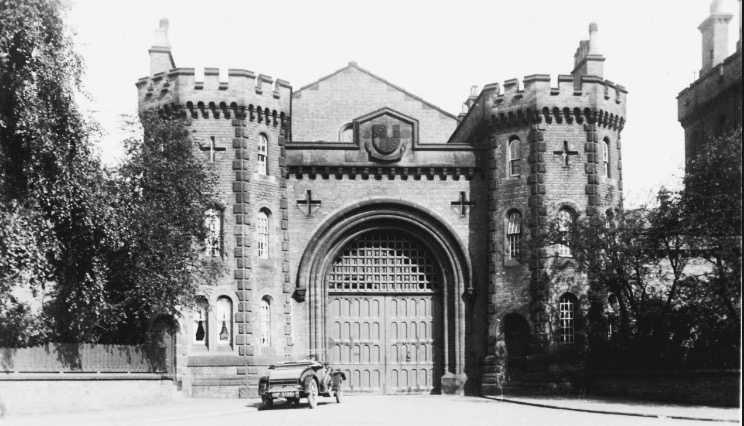Apr 2021
Family Tree post #063
Grandad’s (1st) cousin Phillip meets Prince Philip in Sao Paulo, at a time when the former ran the local Dunlop operation.


Apr 2021
Family Tree post #063
Grandad’s (1st) cousin Phillip meets Prince Philip in Sao Paulo, at a time when the former ran the local Dunlop operation.


Facebook post #048 (Dec 2020)
In London, this was the first Christmas we might have taken a draught of Fuller’s ale. We might too have purchased a few of Tom Smith’s Christmas sweets, twist-wrapped in the French ‘bon bon’ style, with motto included. But this year, we would have experienced a little ‘bang of expectation’ – courtesy of Brock’s fireworks!
And, thanks to Eliza Acton, we might for the first time have referred to “Christmas Pudding”. (To be fair, it had been two years since Tiny Tim had been treated to a brandy-infused plum pudding of Mrs Cratchet’s devising, holly and all. Christmas pudding had evolved – with a bit of help from Empire produce – from longstanding ways of preserving meat, and from spicy fruit porridge.)
On Portsea Island, it was this Christmas – for it was 1845 – that David Meaden remarried (post 45). His five-year old daughter Eliza was destined to be brought up by her new stepmother inside a prison run on military lines. I can’t imagine what social life Eliza and her (nine in a row!) step-sisters may have had… However, when she was 26, she married the boy next door – the son of the chaplain of the asylum next door, the same Charles Edward Brittain who had become a commercial clerk rather than taking the cloth (post 46).
By the time my gt-grandmother Alice (Gertie) was born in 1870, Charles was manager of the Vesta Glassworks, near the prison and asylum. By 1891, the family were living in Trinity Road, Aston Manor. One side of the road was the Jacobean Aston Hall, already 200 years old.

The other side was Villa Park, the home of Aston Villa Football Club, which was less than 20 years old (0-0 with Sunderland on the Boxing Day match, if you were wondering).

Just down the road, Edwin Samson Moore’s colossal Vinegar Works, where Villa’s first Captain worked, was the same age. Fish and chips were catching on! With the pickles Moore had started making, and with his neighbouring supplier, Ansells Brewery, he helped create an exploding demand for glass in Birmingham. The canal network was now well-established and could bring in the sand and other materials needed. Stourbridge’s centuries’ old grip on the glass trade was broken.
Eight years later, Moore bought the rights to HP Sauce from a small grocer, and started making this taste of empire available in industrial quantities. Charles must have passed by the Works every day but there is a tantalising family story of a closer connection (more on the blog).
By this time, Charles was a glassmaker in his own right. Until 1892, he was in partnership running the Belmont Works, one of the top five Birmingham glass houses of the era. By chance, I photo’d the derelict remaining building – the old Eccles Cycle and Rubber Works, later used for pianos, bedsteads and knickers while waiting at the traffic lights on the A47.

Digging a bit more, I found an archaeological assessment that allowed me to plot the precise location alongside the Digbeth Canal (my annotated map),

It also allowed me to confirm that the works matched a local and contemporary negative I found online.

Specialist forums told me that the works were a pioneer of pressed [i.e. moulded] domestic glassware, and that output site varied from plain to ‘flint’ crystal glass and from complex early, partially pressed designs, to cheap mass-produced stuff. I found a Belmont pickle jar online!

After the partnership was dissolved, Charles carried on making glass at a works in Aston Village.
Glass Christmas tree decorations had apparently been invented in Germany mid-century by a glass blower who couldn’t afford real apples. Queen Victoria and her German husband, Albert, took a fancy to these ‘baubels’, and made them trendy, so it’s tempting to imagine them in Charles and Eliza’s drawing room. The Americans were quick to take up the idea, and a certain Frank Woolworth was apparently making $25m a year from mass-produced versions…

Eliza died in 1907. Charles remarried, thus disinheriting his family. “She [Catherine] wouldn’t even give the family one piece of glass from the factory.”
The last vestiges of the Belmont site were cleared in 2019 in preparation for the erection of a 37-storey tower in the new mixed use ‘Eastwood Locks’ development. The derelict factory is being restored, apparently to be incorporated in another development called ‘Glasswater Locks’.

Facebook post #045 (Nov 2020)
In 1856, there was a sensational trial at the Birmingham assizes. Lt. William Austin had replaced the well-known reformer Alexander Maconochie as governor of the Borough Gaol. Maconochie, the prison’s first governor, had been retired due to the perceived laxness of his regime.
By contrast, his former deputy Austin had instituted a reign of terror. A Royal Commission had investigated a whistle blower’s accounts of the inhumane treatment of skinny 15-year old, Edward Andrews, convicted of throwing stones, scrumping apples and stealing a piece of beef. He had been punished cruelly when he couldn’t manage the routine hard labour of endlessly cranking a weight on a machine, and had committed suicide. Austin was himself jailed.
His replacement as governor at Winson Green (later HMP Birmingham) was David Meaden, my gt-gt-gt-grandfather. He was a former warder at Pentonville and Parkhurst prisons, and likely to have been present when Queen Victoria visited Parkhurst in 1845. She remarked on the loneliness of the boys in the routine initial solitary confinement, and with more satisfaction on the practical skills they learned. 1500 boys were sent to Australia and New Zealand from Parkhurst. During their training, the boys were guarded in the fields by soldiers with muskets and bayonets, presumably including David.
David’s first wife was Eliza Waddilove, daughter of ‘gentleman’ James Waddilove and sister-in-law of the unfortunate Zillah from last week’s post. Her first husband had died in Lambeth at age 30, a couple of years after they lost their only child. She had two daughters with David, and died at age 33. The elder daughter was Eliza Meaden Meaden, David clearly not wanting her to lose her identity when she married!
When he married Eliza, David was the son of a farming family from Blandford in Dorset. He had enlisted in the Life Guards (pic is contemporary), possibly via the Dorset Yeomanry Cavalry.

He was based in the Regent Park Barracks (pictured), designed by John Nash. Accommodation was, however – as too often over the years – sub-standard.

By the time Eliza jr was born, he was a different sort of guard – on the recently opened London and Birmingham Railway!!
David remarried on Portsea Island in 1843, and was a prison officer by 1845. He went on to be ‘an active and zealous officer’ at Winson Green, but was replaced when the government took over the prison in 1878, possibly as a result of three prisoners escaping the previous year.

In 1964, ‘great train robber’ Charlie Wilson escaped from the prison. In 1995, Fred West killed himself there. In the same year, the prison was accused of being too lax by its own Board of Governors. In 2018, it was taken over by the government after a privatised regime of ‘violence, drugs and squalor’.

There is a picture of the cranking machine, tightened by ‘screws’ (!) here: https://www.facebook.com/…/a.21454939…/1597193173771813/

Facebook post (3 Apr 2020)
That’s me furloughed then…
Update (Nov 2022): Well it gave me the chance to finish the blog project, I suppose. Apparently, the expression derives from the Dutch verlof, “leave of absence”.
Facebook post #013 (11 May 2020)
I just found out that one of my relatives, Bert Baker, was furloughed. This was 100 years ago, mind, and it took ten days to get back from Alexandria before his leave could begin. He was in the Machine Gun Corps (the regiment with no history to fall back on, and a 36% casualty rate).
The form completed by his commanding officer has faded badly but I can make out “Sobriety: drinker. Is he reliable? Fairly. Is he intelligent? Average.”
When he wasn’t called back after six months, he married a German girl in Crouch End.